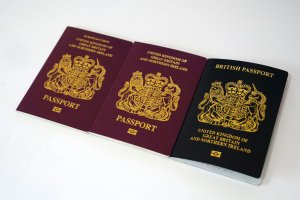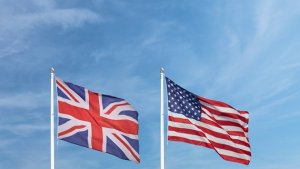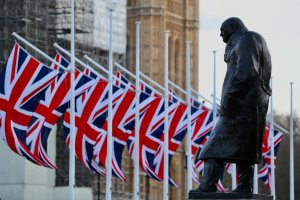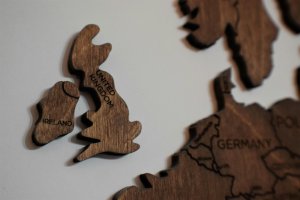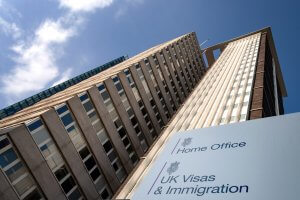- Immigration
- International

Longer Reads
British Nationality Bill confirms citizenship of children born to EEA parents
There was good news this week for people asserting British nationality thanks to EEA parents living in the UK when they were born.
1 minute read
Published 5 July 2023
Key information
- Specialisms
- Private Wealth
- Services
- Immigration
- International
It has long been the case that someone born in the UK to EEA parents between 1 January 1983 and 1 October 2000 could acquire British nationality automatically. However, earlier this year the Home Office suspended its policy for the automatic acquisition of British citizenship in this way, while it worked through certain “recently identified legal issues”. Thankfully, those issues have been resolved, reopening a popular path to the automatic acquisition of British citizenship.
The background
Until March this year, it was established practice that a person (“P“) was automatically a British citizen if:
– P was born in the UK between 1 January 1983 and 1 October 2000;
– At least one of P’s parents was a citizen of a country that was in the EU or EEA at the time;
– That parent was living in the UK with free movement rights at the time; and
– If the parent meeting these conditions was P’s father, he was married to P’s mother when P was born.
If these conditions are met, P could apply straight away for a British passport, with all the rights and benefits that came with it. This was known as “automatic acquisition” and was accepted practice by the Home Office, providing a route to British nationality for thousands.
The issue
This long-held position changed in March 2023, following the case of R(Roehrig) v SSHD[1] (“Roehrig“) in January 2023.
In Roehrig, the Home Office argued that Mr Roehrig was not entitled to a British passport, since his mother (who was French and living in the UK when he was born) was not “settled” in the UK at the time. “Settled” for these purposes means that a person is living in the UK and is not subject to any restriction on the period for which he or she can remain. Mr Roehrig argued that EU nationals were not subject to immigration restrictions, since EU law permits the free movement of people between member states where an EU national is exercising their treaty rights. Accordingly, he said, his mother was settled in the UK and the automatic acquisition of British citizenship should apply to him on his birth.
The High Court agreed with the Home Office and abruptly updated its guidance in March to suspend its policy of automatic acquisition for individuals born in the UK between 1 January 1983 and 1 October 2000 to an EEA national parent. This affected not only individuals who considered themselves British nationals under this route, but potentially their descendants as well.
The resolution
Fortunately, new legislation has reversed the Home Office position after Roehrig.
Specifically, the British Nationality (Regularisation of Past Practice) Act 2023 was enacted on 30 June 2023, and confirms retrospectively that EEA nationals living in the UK between 1 January 1983 and 1 October 2000 will be treated as “settled” for nationality purposes. This means that any children born to them in the UK during that period will be British automatically. Automatic acquisition has reopened.
This is good news not just for individuals who might be eligible under this route, but also for those who acquired British nationality by automatic acquisition previously.
Careful attention is essential for individuals applying for a first British passport under the automatic acquisition route, not least because Home Office requirements for supporting documentation can be onerous. However, common sense has prevailed and we are once again expecting eligible individuals to take advantage by applying for a British passport.
For more information, visit our Immigration Lawyers page.
[1] [2023] EWHC 31 (Admin)
Related content
Longer Reads
British Nationality Bill confirms citizenship of children born to EEA parents
There was good news this week for people asserting British nationality thanks to EEA parents living in the UK when they were born.
Published 5 July 2023
Associated sectors / services
Authors
It has long been the case that someone born in the UK to EEA parents between 1 January 1983 and 1 October 2000 could acquire British nationality automatically. However, earlier this year the Home Office suspended its policy for the automatic acquisition of British citizenship in this way, while it worked through certain “recently identified legal issues”. Thankfully, those issues have been resolved, reopening a popular path to the automatic acquisition of British citizenship.
The background
Until March this year, it was established practice that a person (“P“) was automatically a British citizen if:
– P was born in the UK between 1 January 1983 and 1 October 2000;
– At least one of P’s parents was a citizen of a country that was in the EU or EEA at the time;
– That parent was living in the UK with free movement rights at the time; and
– If the parent meeting these conditions was P’s father, he was married to P’s mother when P was born.
If these conditions are met, P could apply straight away for a British passport, with all the rights and benefits that came with it. This was known as “automatic acquisition” and was accepted practice by the Home Office, providing a route to British nationality for thousands.
The issue
This long-held position changed in March 2023, following the case of R(Roehrig) v SSHD[1] (“Roehrig“) in January 2023.
In Roehrig, the Home Office argued that Mr Roehrig was not entitled to a British passport, since his mother (who was French and living in the UK when he was born) was not “settled” in the UK at the time. “Settled” for these purposes means that a person is living in the UK and is not subject to any restriction on the period for which he or she can remain. Mr Roehrig argued that EU nationals were not subject to immigration restrictions, since EU law permits the free movement of people between member states where an EU national is exercising their treaty rights. Accordingly, he said, his mother was settled in the UK and the automatic acquisition of British citizenship should apply to him on his birth.
The High Court agreed with the Home Office and abruptly updated its guidance in March to suspend its policy of automatic acquisition for individuals born in the UK between 1 January 1983 and 1 October 2000 to an EEA national parent. This affected not only individuals who considered themselves British nationals under this route, but potentially their descendants as well.
The resolution
Fortunately, new legislation has reversed the Home Office position after Roehrig.
Specifically, the British Nationality (Regularisation of Past Practice) Act 2023 was enacted on 30 June 2023, and confirms retrospectively that EEA nationals living in the UK between 1 January 1983 and 1 October 2000 will be treated as “settled” for nationality purposes. This means that any children born to them in the UK during that period will be British automatically. Automatic acquisition has reopened.
This is good news not just for individuals who might be eligible under this route, but also for those who acquired British nationality by automatic acquisition previously.
Careful attention is essential for individuals applying for a first British passport under the automatic acquisition route, not least because Home Office requirements for supporting documentation can be onerous. However, common sense has prevailed and we are once again expecting eligible individuals to take advantage by applying for a British passport.
For more information, visit our Immigration Lawyers page.
[1] [2023] EWHC 31 (Admin)
Associated sectors / services
- Immigration
- International
Authors
Need some more information? Make an enquiry below.
Enjoy reading our articles? why not subscribe to notifications so you’ll never miss one?
Subscribe to our articlesMessage us on WhatsApp (calling not available)
Please note that Collyer Bristow provides this service during office hours for general information and enquiries only and that no legal or other professional advice will be provided over the WhatsApp platform. Please also note that if you choose to use this platform your personal data is likely to be processed outside the UK and EEA, including in the US. Appropriate legal or other professional opinion should be taken before taking or omitting to take any action in respect of any specific problem. Collyer Bristow LLP accepts no liability for any loss or damage which may arise from reliance on information provided. All information will be deleted immediately upon completion of a conversation.
Close